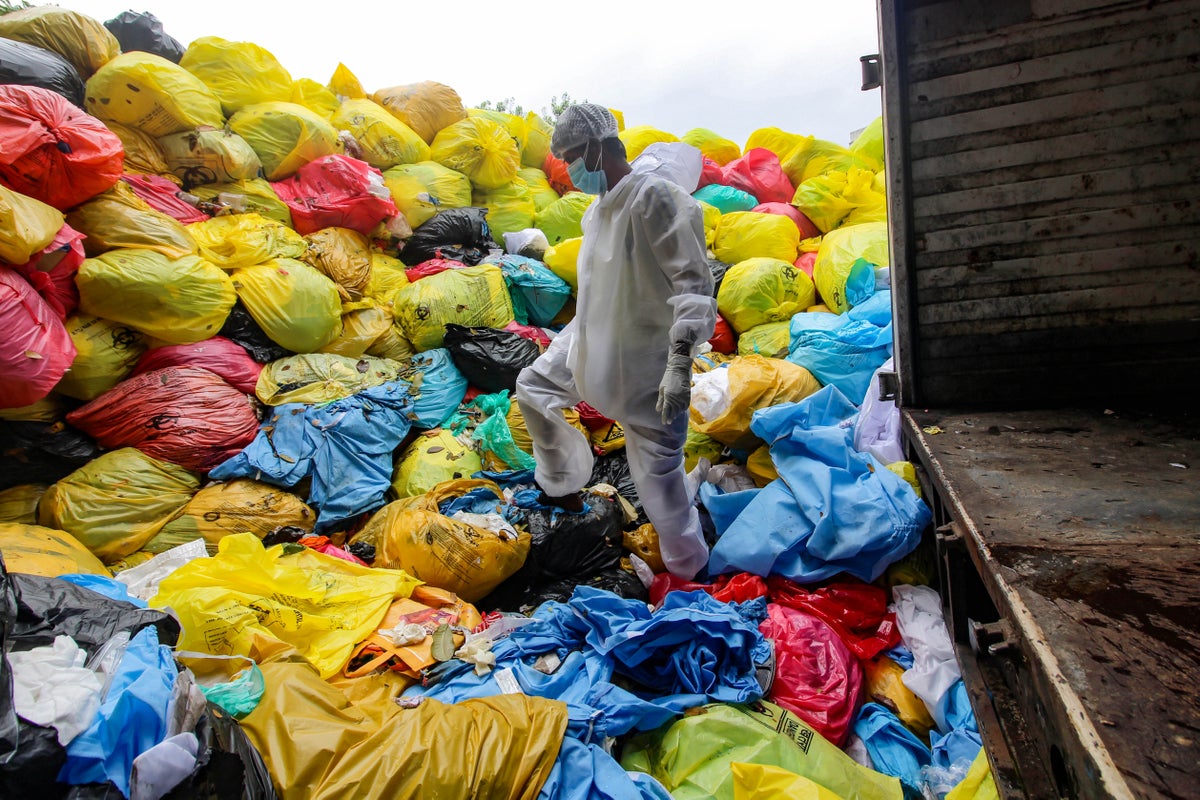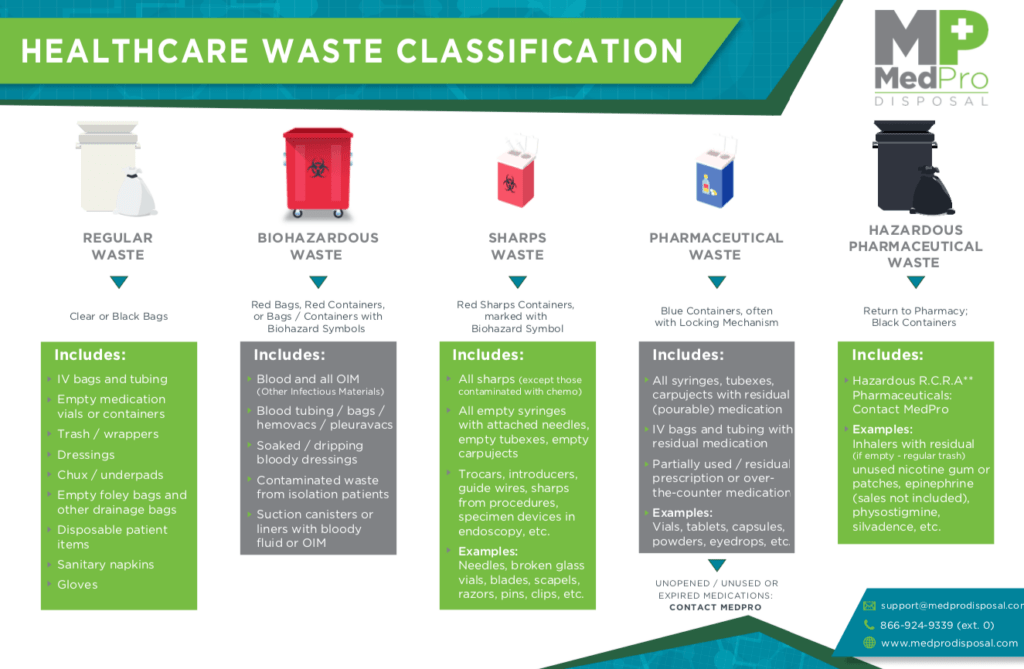Complete Medical Waste Removal Service: Seamless Disposal for Medical Care Facilities
Making Sure Safe Handling and Disposal of Medical Waste
Ensuring safe handling and disposal of medical waste is of vital importance in healthcare settings. Incorrect monitoring of clinical waste can posture significant risks to the atmosphere, public health and wellness, and medical care employees. This demands adherence to rigorous standards and protocols for its safe handling and disposal. In this introduction, we will explore the significance of appropriate medical waste administration, the dangers related to inappropriate handling and disposal, along with the standards and strategies that can be implemented to ensure its safe disposal. Additionally, we will discuss the significance of training and education for healthcare specialists in order to maintain a tidy and safe healthcare atmosphere. By following these techniques, we can properly reduce the prospective dangers linked with medical waste.
Significance of Correct Clinical Waste Management
Correct medical waste monitoring is of utmost significance in making certain the security and well-being of health care professionals, individuals, and the public. Clinical waste describes any type of waste created by healthcare centers during the diagnosis, therapy, or immunization of animals or people. This waste can pose severe health and wellness threats otherwise taken care of and disposed of effectively.
One of the main reasons that appropriate clinical waste monitoring is important is to prevent the spread of contagious illness. Clinical waste, such as made use of needles, contaminated dressings, and biological products, can lug hazardous virus. Otherwise handled and thrown away appropriately, these pathogens can be transmitted to health care employees, people, waste handlers, and even the public, causing the possible episode of conditions.
Additionally, proper clinical waste administration assists shield the setting - medical waste removal. Medical waste contains dangerous materials, including chemicals, pharmaceuticals, and radioactive compounds. When not handled properly, these substances can contaminate soil, water bodies, and the air, positioning a considerable risk to environments and public health and wellness
Moreover, efficient medical waste administration guarantees compliance with regional policies and international standards. Governments and regulatory bodies have actually developed guidelines and protocols to ensure the secure handling, storage, transportation, and disposal of clinical waste. Adhering to these policies is important to prevent lawful consequences and keep the credibility and credibility of medical care centers.
Dangers of Improper Handling and Disposal

If clinical waste is not effectively disposed of,People can additionally be subjected to these transmittable conditions. If infected needles or other sharps are not disposed of in assigned puncture-proof containers, they may accidentally prick people, leading to possible infections. Moreover, if medical waste is not set apart properly, there is a danger of cross-contamination between various kinds of waste, more enhancing the possibilities of disease transmission.
Incorrect disposal of medical waste can also have damaging impacts on the atmosphere and the basic public. If medical waste is not treated and disposed of appropriately, it can pollute water resources, dirt, and air, leading to the spread of pollutants and illness. This can have lasting consequences on environments and public wellness.
Guidelines for Safe Handling of Medical Waste
Implementing effective protocols for the risk-free handling of medical waste is essential in guaranteeing the security of medical care specialists, people, and the general public. These standards are vital in decreasing the threats related to the handling and disposal of medical waste, such as infections, injuries, and ecological pollution.
Primarily, healthcare facilities have to develop a detailed waste administration plan that follows local, nationwide, and international policies. This strategy ought to consist of clear instructions on waste segregation, packaging, labeling, storage space, and transport. It is important to separate different kinds of waste, such as sharps, infectious products, pharmaceuticals, and non-hazardous waste, to stop cross-contamination and advertise risk-free disposal.
In addition, health care employees should get comprehensive training on correct waste handling strategies. They ought to be informed on the potential risks of medical waste, the suitable use individual safety devices (PPE), and the appropriate treatments for handling, transporting, and taking care of various types of waste.
Additionally, healthcare facilities must consistently check and audit their waste administration practices to ensure conformity with guidelines. This consists of carrying out regular assessments, examining waste handling treatments, and supplying feedback and training to employee.
Efficient Techniques for Garbage Disposal
To ensure the safe handling and disposal of medical waste, it is important to employ reliable methods for waste disposal. Medical waste can position considerable dangers to public wellness and the atmosphere otherwise managed and disposed of effectively. Healthcare facilities and waste administration organizations should implement appropriate approaches to mitigate these risks.
It entails separating various types of clinical waste based on their qualities. Medical care facilities must offer clear guidelines and training to staff members on how to segregate waste properly.
Additionally, medical care centers ought to collaborate with accredited waste administration firms to guarantee proper disposal of medical waste. These business have the proficiency and tools called for to securely deal with and get rid of of medical waste in conformity with regulations and ideal practices.
Training and Education And Learning for Health Care Professionals
Medical care specialists play a critical role in ensuring the secure handling and disposal of medical waste with detailed training and education. It is important for healthcare service providers to have a deep understanding of the possible dangers related to clinical waste and the appropriate methods for its management. By getting proper training, healthcare professionals can lessen the potential transmission of contagious diseases, stop environmental contamination, and secure both themselves and the Continued general public.

Furthermore, training programs should stress using individual protective tools (PPE) and correct hand hygiene methods when handling clinical waste. medical waste removal. Health care specialists need to recognize just how to appropriately dispose and use of PPE to protect themselves from possible exposure to unsafe materials. They should also be educated on the relevance of normal handwashing and the correct use hand sanitizers to minimize the spread of contagious illness
Proceeding education and normal updates on medical waste administration methods are critical for healthcare specialists. As policies and guidelines develop, it is necessary to keep doctor informed regarding any kind of adjustments in protocols and ideal techniques. This will certainly make certain that they remain current and maintain a high criterion of safety in dealing with and disposing of medical waste.
Conclusion
In conclusion, appropriate handling and disposal of clinical waste is critical to make certain the safety and security of health care specialists, individuals, and the atmosphere. By adhering to these practices, we can minimize the prospective dangers linked with clinical waste.
Medical waste refers to any kind of waste produced by healthcare centers during the medical diagnosis, therapy, or immunization of human beings or animals. If medical waste is not set apart correctly, there is a risk of cross-contamination in between different kinds of waste, further raising the possibilities of disease transmission.
It is crucial to separate various kinds of waste, such as sharps, contagious products, pharmaceuticals, and non-hazardous waste, to prevent cross-contamination and promote secure disposal. WasteX Medical Waste Disposal.
To ensure the risk-free handling and disposal of clinical waste, it is vital to use effective methods for waste disposal. In addition, healthcare centers need to establish a routine waste collection and transport schedule to avoid waste accumulation and minimize the risk of mishaps or contamination.